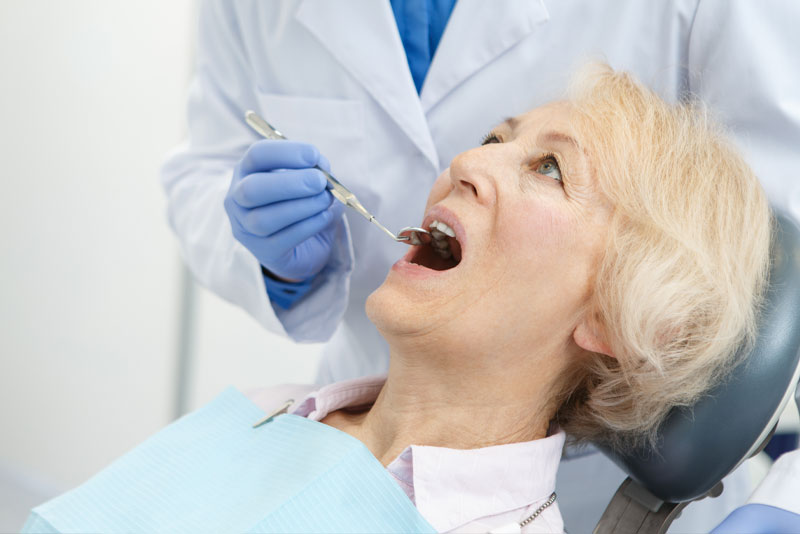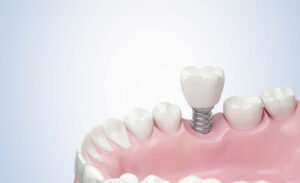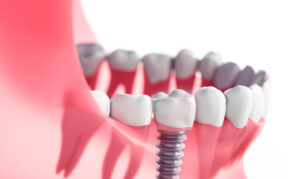People who are treated for missing and failing teeth with dental implants, generally experience successful outcomes. However, patients can develop a serious infection called peri-implantitis after their dental implants are placed. Peri-implantitis requires immediate attention from a highly trained periodontist, in order to avoid procedure complications. But how do people know if they have peri-implantitis in Oak Brook, IL?
As with all medical conditions, people should be aware of the signs that may indicate they have peri-implantitis.
What Oral Conditions Indicate That I Have Peri-Implantitis In Oak Brook, IL?
Because peri-implantitis is an infection that begins in the soft and hard tissues around a patient’s dental implants, they will probably first notice its signs in that area. For instance, some of the early warning indicators that dental implant patients have peri-implantitis include:
- Redness and swelling around the dental implant
- Pus or bleeding around the dental implant
- In rare peri-implantitis cases, pain
The most important point to remember about peri-implantitis, is that patients cannot diagnose themselves with it, or treat it themselves. When dental implant patients have peri-implantitis, they should go to a reputable periodontist right away so that they can avoid having further issues and save their dental implants.
What Happens If I Don’t Get Treatment For My Peri-Implantitis?
When dental implant patients ignore the symptoms that indicate they have peri-implantitis, the infection could spread throughout their mouth and cause more problems. Eventually, the patient’s dental implants will start to become unstable in their mouth. The longer peri-implantitis is not treated, the more likely the dental implants will fall out.
In order to protect their oral health and their dental implant investment, people with peri-implantitis should get treated by a skilled and trusted periodontist.
How Will I Treat My Peri-Implantitis?
Peri-implantitis can be treated by a knowledgeable periodontist. The periodontist will use specialized equipment, such as the BIOLASE WaterLase® REPaiR Implant™ protocol, to treat the areas around the dental implant that have peri-implantitis. Those areas will then be cleaned to eliminate the bacteria causing harm. Any diseased or destroyed tissues will be removed, as well.
The goal of peri-implantitis treatments is to sanitize the area so bone can heal, and gum tissues can regenerate and reattach normally.
See Us Now So We Can Treat Your Peri-Implantitis
When you come to our compassionate and dedicated office, we can expertly determine if you have peri-implantitis. The sooner you know you have peri-implantitis, the sooner you can get it treated. Don’t hesitate to restore the look, health, and function of your smile with us. Get in contact with Dr. Amarik Singh and our exceptional team at our Periodontal Implant Associates office to schedule an appointment today!



